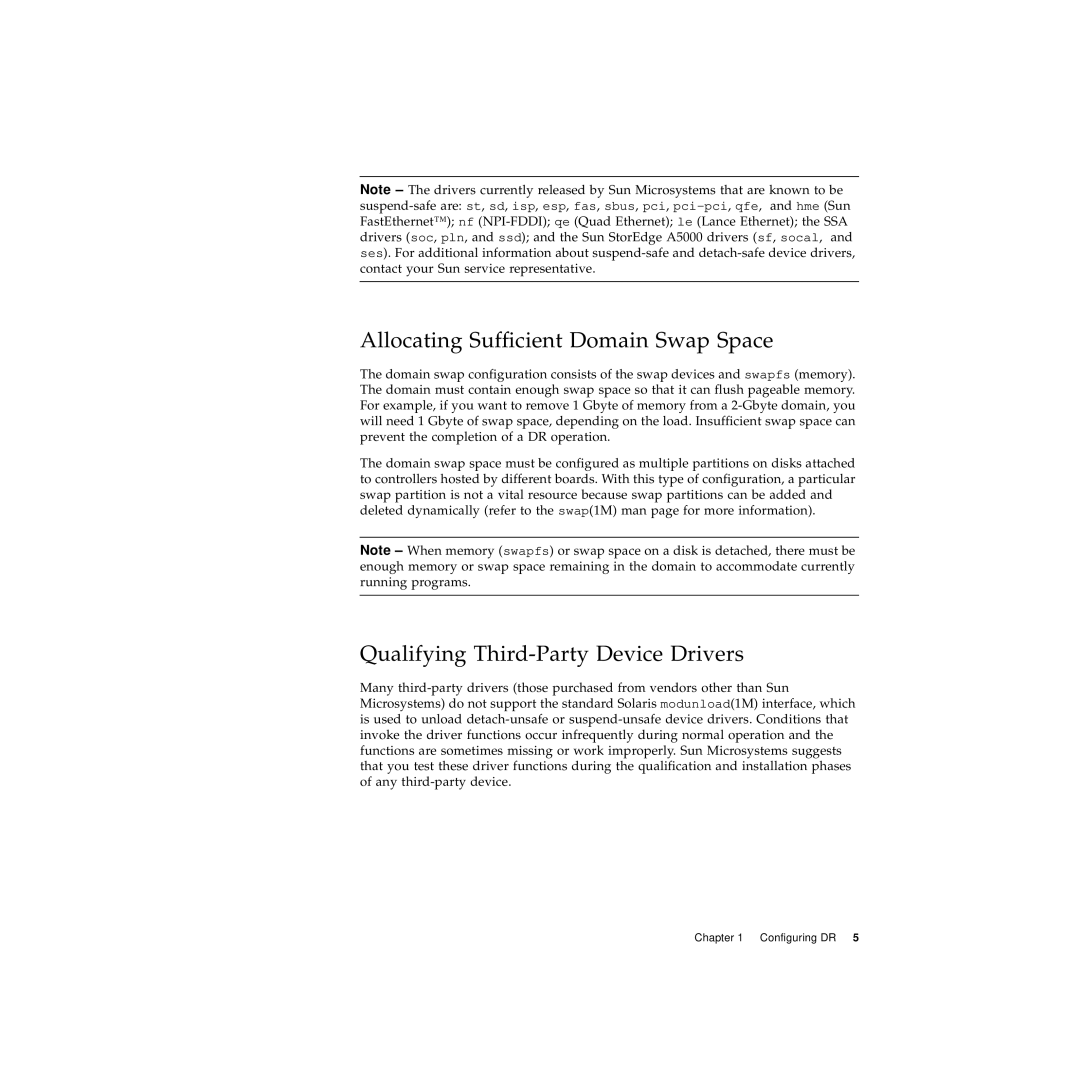Note – The drivers currently released by Sun Microsystems that are known to be suspend-safe are: st, sd, isp, esp, fas, sbus, pci, pci-pci, qfe, and hme (Sun FastEthernet™); nf (NPI-FDDI); qe (Quad Ethernet); le (Lance Ethernet); the SSA drivers (soc, pln, and ssd); and the Sun StorEdge A5000 drivers (sf, socal, and ses). For additional information about suspend-safe and detach-safe device drivers, contact your Sun service representative.
Allocating Sufficient Domain Swap Space
The domain swap configuration consists of the swap devices and swapfs (memory). The domain must contain enough swap space so that it can flush pageable memory. For example, if you want to remove 1 Gbyte of memory from a 2-Gbyte domain, you will need 1 Gbyte of swap space, depending on the load. Insufficient swap space can prevent the completion of a DR operation.
The domain swap space must be configured as multiple partitions on disks attached to controllers hosted by different boards. With this type of configuration, a particular swap partition is not a vital resource because swap partitions can be added and deleted dynamically (refer to the swap(1M) man page for more information).
Note – When memory (swapfs) or swap space on a disk is detached, there must be enough memory or swap space remaining in the domain to accommodate currently running programs.
Qualifying Third-Party Device Drivers
Many third-party drivers (those purchased from vendors other than Sun Microsystems) do not support the standard Solaris modunload(1M) interface, which is used to unload detach-unsafe or suspend-unsafe device drivers. Conditions that invoke the driver functions occur infrequently during normal operation and the functions are sometimes missing or work improperly. Sun Microsystems suggests that you test these driver functions during the qualification and installation phases of any third-party device.

